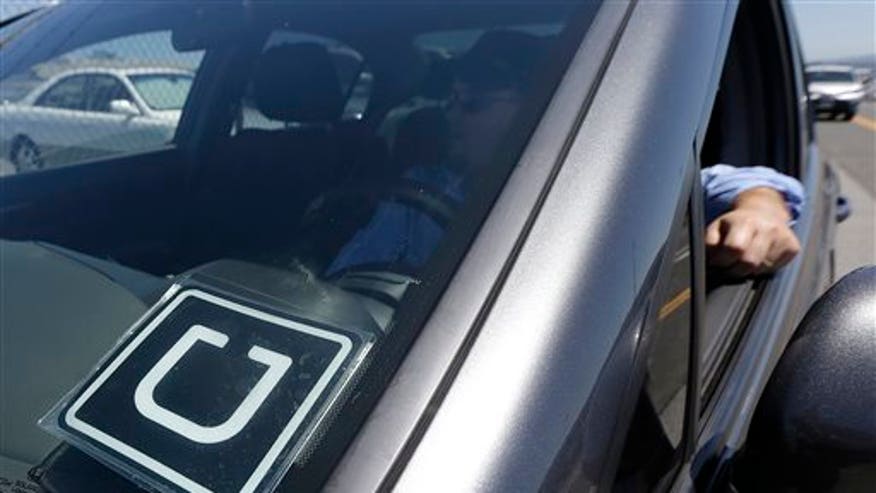The taxi medallion scam is one of the worst examples of crony capitalism. Uber (and some other app-driven services) are in the process of defeating the scam in New York and, apparently, in many other places as well. It's about time.
The scam is simple. A city issues a limited number of so-called "medallions," which convey exclusive rights to pick up passengers on the streets, and often at airports as well. I have never heard anybody articulate a good rationale for why the number of medallions should be limited. Fake rationales include preventing "destructive" competition (don't we have that in every industry?) and so-called environmental concerns (always articulated by those holding medallions whose only value lies in artificial scarcity).
I have a long-time friend, call him R, who is head of one of those lenders that specialize in loans for the purchase of taxi medallions. Twenty or so years ago I went for the first time to a fundraising event for a candidate for City office, and there was R. Since then, I haven't been to many fundraising events for candidates for local offices, but at the few I have attended, somehow R was always there. I can't say I was surprised when Bloomberg News reported last month that the medallion taxi industry had contributed over $500,000 to the campaign of Bill de Blasio for Mayor. Probably, they contributed that amount or close to it to other candidates as well. Other than the City employee unions and real estate interests, the taxi medallion guys have been right at the top of the political contribution heap.
Back when I first found out from R what business he was in (I think this was in the 90s), I expressed some very severe skepticism. From there, the conversation went something like this:
R: It's literally the best industry to lend in. We have not had a single default in decades.
Me: That will be true until the day that all the value suddenly disappears. Basically, all the value comes from the artificial scarcity. One day that will disappear, and the medallions will suddenly be worthless all at once.
R: They've been saying that for decades. Meanwhile we are diversifying to some degree.
Since this was before this blog recorded all my thoughts, I don't have an official record of my prediction. However, it is now rapidly coming true.
For the past few years, New York City taxi medallions have been trading for over $1 million each. With over 13,000 medallions issued, this has represented a value of over $13 billion --a good measure also of the value of the inconvenience inflicted on people in neighborhoods where taxis have been systematically unavailable for decades due to the corrupt crony system. But with the advent of Uber, the value of the medallions has suddenly plummeted. This article from CNN Money in July reports that the value of a medallion is off by some 40% from its peak just last year.
And that's if you can sell a medallion at all. Many reports indicate that the market has gone dead as lenders have been spooked and refuse to lend.
When the medallion market first started to plummet, de Blasio and his friends on the City Council (all takers of industry cash) floated several proposals to put the reins on Uber, including, for example, a limit on Uber licenses. But when the reports started to come out about the unbelievable amounts of political contributions they had received from the medallion taxi industry, suddenly they were in a tough spot. Turns out that our "progressive" Mayor and City Council would happily sell their outer-borough constituents down the river, inflicting them with $13 billion of inconvenience, and handing the $13 billion to a handful of cronies, in return for a paltry few million of political contributions.
The latest news is that de Blasio and the Council are refusing to help out their medallion-owning friends, so the medallion owners are now pinning their hopes on a litigation contending that existing law restricting non-medallion owners to only "pre-arranged travel" effectively outlaws the Uber model. Good luck with that. Of course de Blasio and the Council will gladly help out their medallion-owning friends as soon as nobody is looking; but it seems that people are going to be looking at this one, at least for a while. Now, will anybody start to pay attention to, for example, the "green energy" scam?






/cdn0.vox-cdn.com/uploads/chorus_asset/file/3902290/GettyImages-477618242.0.jpg)

